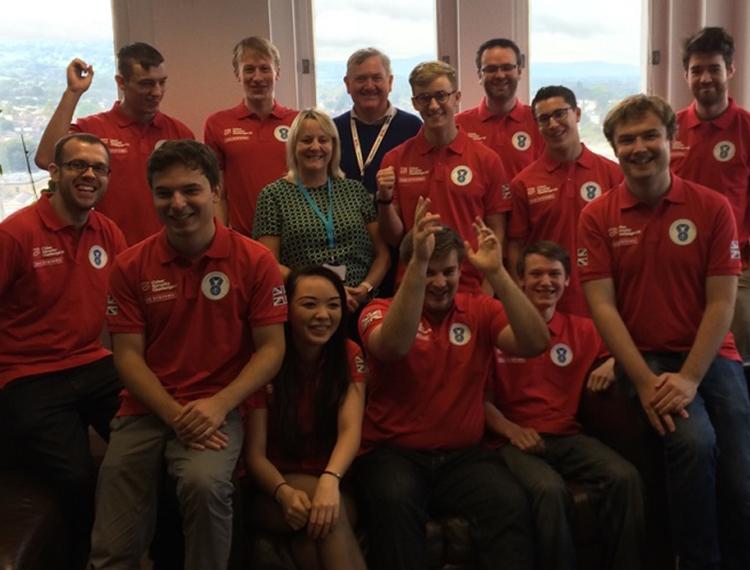UK’s best young cyber talent representing Britain in 2017 European Cyber Security Challenge

Ten of the UK’s best cyber enthusiasts are representing Britain in the 2017 European Cyber Security Challenge (ECSC) this week in Malaga. Britain’s best cyber talent will be tested in a series of cyber security challenges, examining skills from network analysis to digital forensics and cryptography. The UK team will be competing against teams from 15 countries including Spain, Germany, Ireland, Romania and Austria.
This year’s team includes 18-year-old Masterclass winner Ben, a Brazilian Ju-Jitsu enthusiast and avid gamer; heavy metal and polo loving Sophia – whose cyber forensic skills helped her team win a JP Morgan coding challenge earlier this year; and Matt who, after successfully competing in Cyber Security Challenge UK competitions, has been working in various industry roles for the past two years. All of Team UK’s players are led by members of the Cyber Security Challenge UK team and are coached by Tim Pullen, a cyber expert at BAE Systems.
“It is really important to support the next generation of cyber security talent, not only to ensure more young people take up cyber security as a career, but also to show the rest of the world the UK’s amazing cyber security capabilities,” said Tim Pullen, Operational Cyber Practice Head at BAE Systems. “We support Cyber Security Challenge UK as competitions like theirs and the ECSC can help to unearth talent which would be missed through traditional recruitment processes and is critical to continue to grow the cyber security sector.”
The competition, taking place this week, offers a chance for top cyber-talents in Europe to meet, network, collaborate and compete against one another to determine which country has the best skills. Young cyber talents discovered at the competition are encouraged to pursue careers in cyber security and use their European connections across their professional journeys.
“This competition is important for the UK to showcase our talent to the rest of the continent,” said Debbie Tunstall, Head of Education Programmes, Cyber Security Challenge UK. “We are excited about the progress we’re making in the UK and the level of talent we find on a daily basis through our competitions and events. We have a great team heading to Malaga with us and we’re sure they will do us all proud during this intense and somewhat demanding competition.”
The ECSC competition has been developed in response to the growing popularity of cyber security challenges across the continent. These challenges have proven to be a great source of talent and recruitment for companies across the cyber security landscape, including government organisations, banks and financial institutions, energy suppliers and communications providers. The competition also allows international companies to see which country is home to the best of the best. Each country operates its own national competitions to recruit teams for the European competition.
To find out more about the team, you can access their individual profiles here.
About Cyber Security Challenge UK: With the backing of founding sponsors like the SANS Institute, the Challenge started out in 2010 to create a series of virtual and face-to-face competitions that would identify talented people for the cyber security industry. Now in its 8th year, the Challenge is backed by over 50 of the UK’s most prestigious public, private and academic organisations, and hosts a wide programme of activities designed to spread the word about why cyber security is such a fulfilling and varied career and help talented people get their first cyber security jobs. Working with those at schools, universities and those looking to change careers, the Challenge is making a notable difference to the career prospects of those with the talent and aptitude to become cyber security professionals.
The full list of competing countries and further information on ECSC can be found here.











Responses